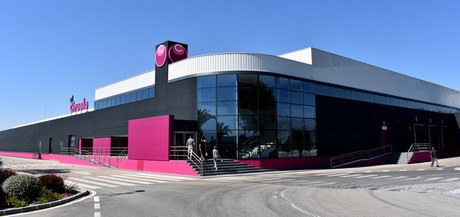
The table grape campaign has already started in Murcia with the harvest of the early varieties in Mazarrón and Águilas. It will then continue in the Guadalentín Valley, Cieza and finally Yecla and Puerto Lumbreras. Grupo el Ciruelo, one of the leading companies in the production of table grapes in Murcia, has 2,000 hectares distributed throughout these areas and another 1,000 hectares producing 50,000 tons of Spanish seedless table grapes for this campaign, which will last from June to December. This year will be their second harvesting organic seedless grapes, which they sell under their new brand BioCiruelo.
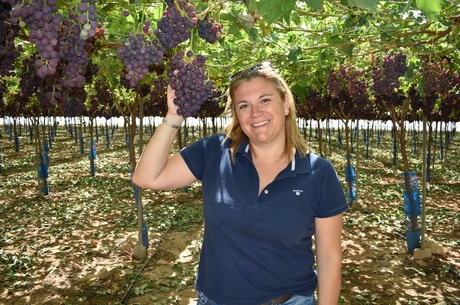
"We are already working on the new Spanish table grape campaign, in which we are finding good market opportunities thanks to the delay of the shipments from Egypt. We will compete for a while with Egypt, and then the Italian grapes will arrive. Last year was a tough one, especially at the end of the season, when there was more rainfall than expected. We produce large volumes of late grapes, and fortunately, we are prepared for the adverse weather conditions, since we protect our plantations with plastic covers, but if it rains too much, it is always a challenge," says Cristina Gutiérrez.
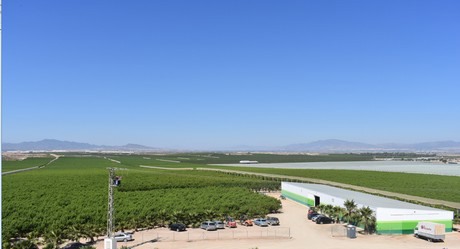
Finca El Campico, with around 1,000 hectares, which are planted with both table grapes and stone fruit.
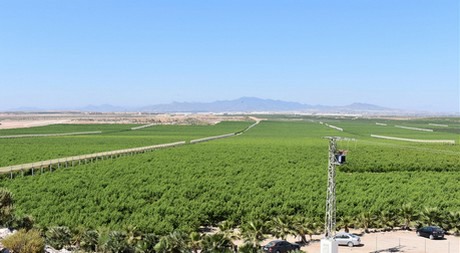
Regarding the acquisition of Labrunier, from which they already started importing fruit 3 years ago, Cristina says that it will make a great contribution to the off-season campaign. "We increasingly import more fruit from Brazil, Peru, Chile and South Africa, since we have good supply programs all year round. The fruit that we import from these countries is mostly intended for the domestic market, France and Portugal. With the purchase of Labrunier, we will have the off-season production under better control; something that we already do in Spain, where all the production is our own. It has been a long process, but we have finally reached a purchase agreement. We don't want there to be any big changes. Labrunier will keep its customers, both overseas and in the domestic market, which absorbs about 50% of the production. It is also worth noting that only Spain is able to produce table grapes for 7 months without interruptions; something unique in the world, considering that in the remaining 5 months, we import grapes from at least 4 countries."
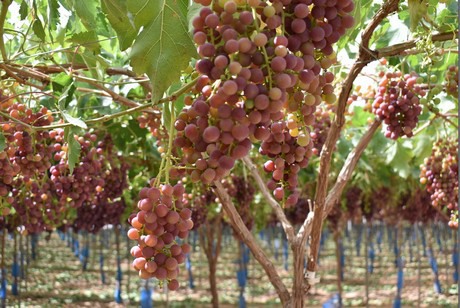
In the last 10 years, there have been important developments when it comes to seedless table grape varieties. "The sector has changed a lot in this area, and although there is still a lot to do, I believe that the new varieties that we've had for the last 2 or 3 years, especially the Candy family, are going to considerably boost table grape consumption. Just two years ago, this kind of grapes were only demanded by markets such as the United Kingdom and Scandinavia; however, almost all markets now already demand special varieties."
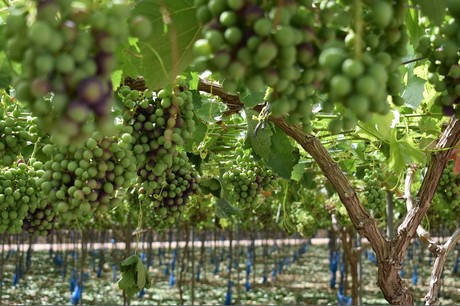 More than 95% of El Ciruelo's grapes are packed in the field, where the company makes most of its investments.
More than 95% of El Ciruelo's grapes are packed in the field, where the company makes most of its investments.
"We are now seeing scenarios which didn't occur before these varieties arrived on the market, such as large promotions of seedless grapes in November or the promotion of white varieties without seeds at the end of October." A new and wide range of possibilities opens up the new varieties of table grapes, "says the commercial manager.
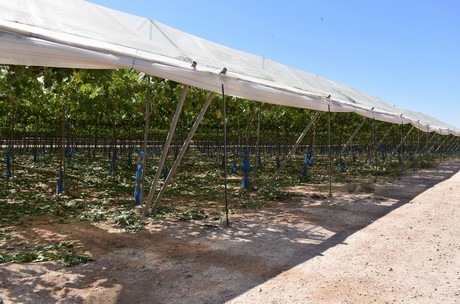
Italy is one of the biggest competitors for Spanish grapes, and although its seedless grape production is on the rise and it is betting on new varieties, Cristina says that its work is still far behind Spain's. "Italy is a few years behind Spain in terms of investment and development of seedless grape varieties."
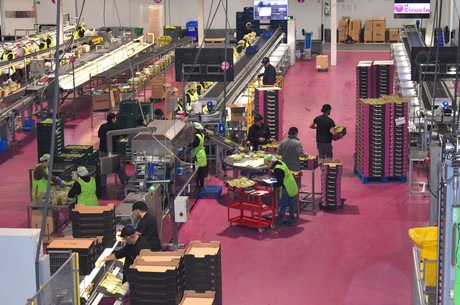
"The sector is not yet ready to get rid of all plastic"
In the last two years, European consumers have shown a growing concern about the negative consequences that the excessive use of plastic could have in the environment.
"Currently, more than 95% of the seedless grapes in Europe are marketed in plastic punnets and I do not think that this sector is prepared to completely dispense with this material in the short term. Some are choosing to return to the traditional system of selling in bulk, but I do not think there is a future in this, since the fruit is then exposed to many elements that can damage its quality and its shelf life. We are investigating to find a solution to reduce the use of plastic in our packaging, and for the time being, everything points in the direction of compostable paper trays with heat sealing; however, we don't know yet whether this will be a 100% effective solution. We are all concerned about this issue and I think that, little by little, plastic use will be reduced, but the change won't happen suddenly, as many would like."
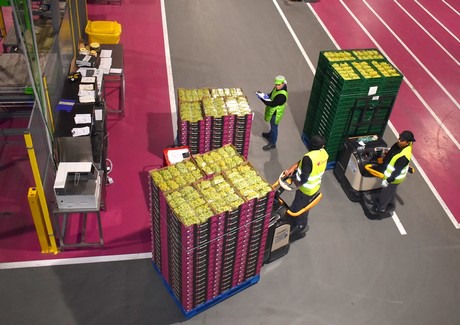
First tests with shipments to China and Vietnam
The most important destinations for this company, which is 95% focused on the retail market, are the United Kingdom, Scandinavia, the Netherlands, Belgium, Spain, Germany, South Africa and Asia, as well as Portugal and France (among others) to a lesser extent. This year, El Ciruelo will carry out the first tests with shipments to China and Vietnam, destinations for which an export protocol for table grapes was recently approved. The company already has experience in exporting table grapes to Asian countries such as Singapore and Hong Kong.
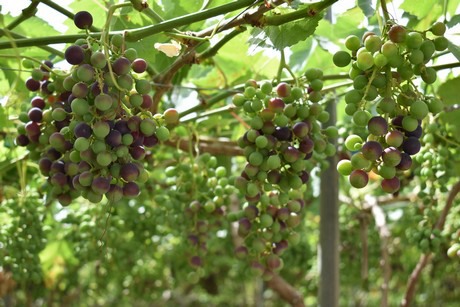
"The opening of the Chinese market entails great opportunities for us, but also great challenges in terms of logistics, as even though it is more favorable for table grapes than it is for stone fruit, it remains a demanding protocol."
 Cristina Gutiérrez
Cristina Gutiérrez